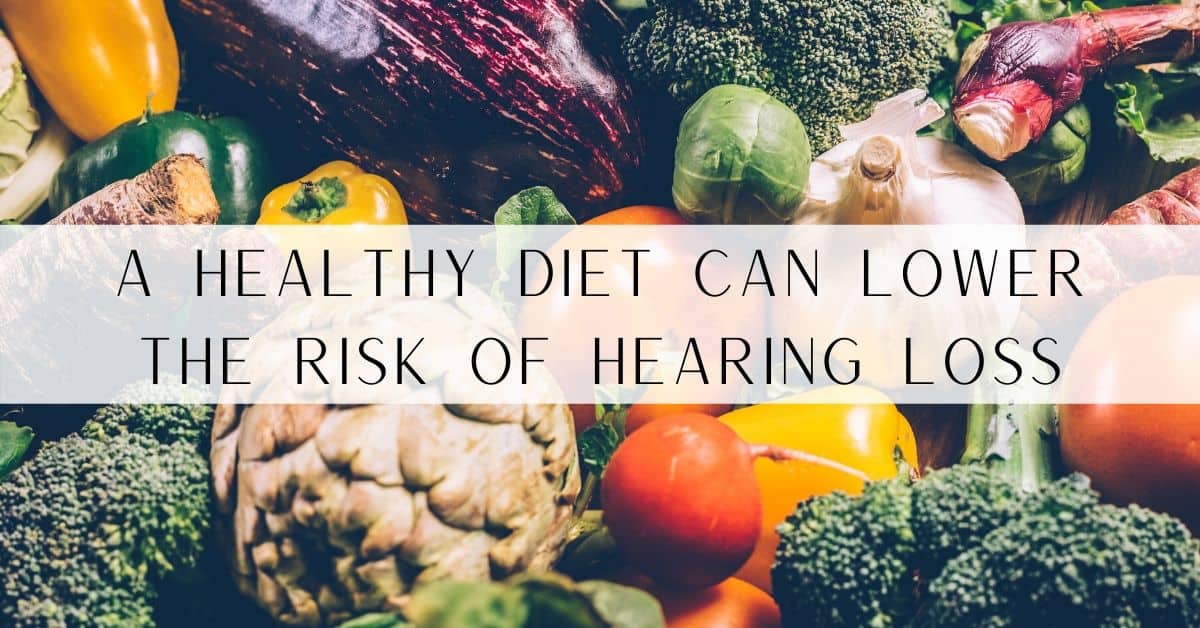
- Common Misconceptions That Delay Hearing Loss Diagnosis - June 6, 2025
- Signs Your Earwax Buildup Needs Professional Attention - May 29, 2025
- Preparing for a Hearing Test and What You Should Bring - May 16, 2025
Everyone ages, but with some attention and care you can take steps to grow old gracefully. This means making sure you get regular exercise, keep up with your doctor visits and make sure you eat a healthy balanced diet. What you put in your body can affect your cholesterol, your weight, and your mood, but did you know that your diet also could affect your hearing ability? New findings have linked healthy eating practices with healthier hearing, as people grow older.
Age Related Hearing Loss
As we age it is common for your hearing to break down slowly. This is referred to as presbycusis (age related hearing loss) and is the most common form of hearing loss, affecting 1 in 3 people over 65 and over half of those over 75 years of age. Presbycusis occurs as the tiny hairs and nerves of our inner ears that pick up sound become damaged leaving us with permanent hearing loss. Even if you’ve protected your ears in noisy environments and avoided damage to your hearing over the years, the tiny parts of your inner ear that help you hear become brittle. However there are practices you can do today to ensure that your ears will be resilient as you age.
Research into Healthy Diets
A recent study conducted by Brigham Women’s Hospital as part of the Harvard Medical School studied the effects of diet and it’s correlation to hearing loss. The study surveyed over 70,000 women between 50 and 60 years of age. Collected between 1991 to 2013 the study compared eating practices with self-reported hearing loss.
“We observed that those following an overall healthy diet had a lower risk of moderate or worse hearing loss,” explained study author, Sharon Curhan, MD, “eating well contributes to overall good health, and it may also be helpful in reducing the risk of hearing loss.”
While the study group demographic must be expanded to include a wider base the study demonstrated that women who maintained a regular healthy diet were 30% less likely to struggle with hearing loss as they aged.
How to Eat for Healthy Hearing
So what exactly is a healthy diet that can help keep your ears from breaking down before their time? The researchers at Brigham found that test subjects that roughly followed a Mediterranean diet or the DASH diet had the least amount of issues with hearing loss. The Mediterranean diet consists mostly of unprocessed vegetables, fruits, herbs, nuts, beans and whole grains with a limited amount of fish, poultry and eggs. There is a general avoidance of pork and red meat in the Mediterranean diet.
The DASH diet stands for Dietary Approaches to Stop Hypertension and is designed to consume foods that keep your blood pressure low. The DASH diet accomplishes this by suggesting you consume foods rich in potassium, calcium and magnesium while keeping your salt intake low.
These diets are only suggestions that can help you maintain good circulation and a healthy heart. This affects your ears, as well as ample blood flow and oxygen are essential to our inner ear health. When the tiny blood vessels in our inner ear don’t receive enough blood flow is when the fragile hairs and nerves in our inner ear become permanently damaged.
Protect Your Hearing Health
Creating a practice of healthy eating is a great long-term preventative strategy for hearing health. It can be difficult to get used to at first but as you experiment with a healthy diet you might also experience more consistent energy levels and elevated mood. What we put in our body affects every part of our day. However eating healthy is just one part of total health. Make sure to exercise consistently, and to do the things that bring you joy in life. If you feel that you are dealing with hearing loss it is important not to ignore your condition. Make an appointment with our team for a hearing test today. We can help you find the best treatment for your hearing loss so you can continue to get the most out of life and stay in control of your hearing health.
